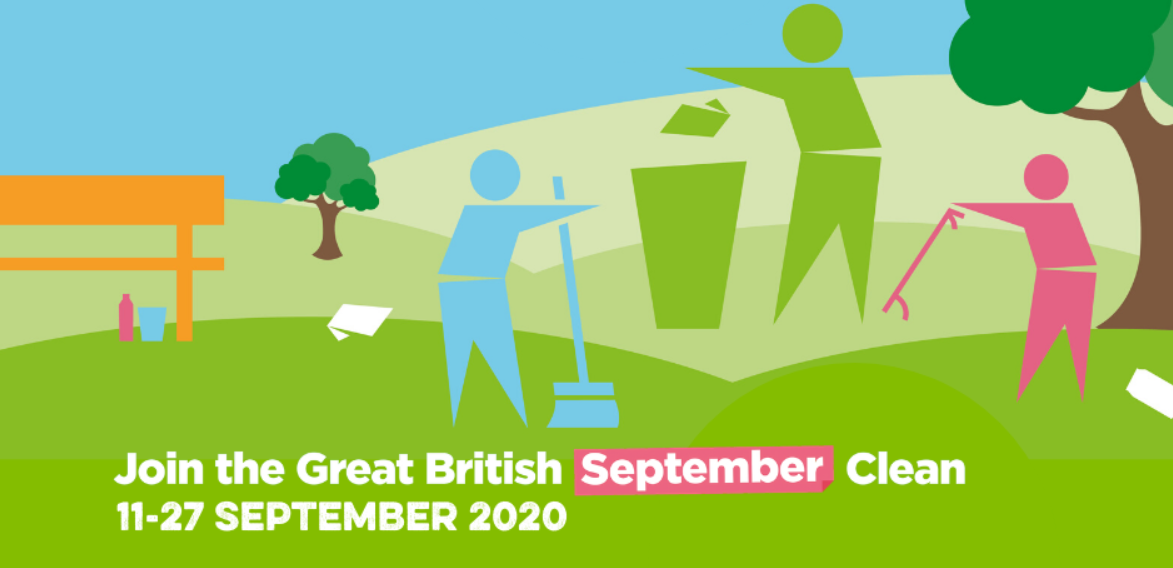Keep Britain Tidy had originally planned to run their Great British Spring Clean event in March, but had to postpone it due to the coronavirus pandemic.
They have now relaunched the event with the new name: Great British September Clean 2020 – which is due to take place from 11 – 27 September.
The event encourages members of the public to pick up litter in their local area, either during organised clean-up events or in their own time (while walking the dog or taking the kids to school, for example). Last year more than 560,000 took part in the event, and this year Keep Britain Tidy is aiming to get 600,000 people involved with picking up litter.
As many local councils will be planning to organise their own clean-up event during this year’s Great British September Clean, we have put together the below guide to answer any questions you may have regarding what cover your insurance policy may or may not provide.
If you have any questions about extending cover for a litter picking event, please get in touch with us for more information.
Michelle South, Director of BHIB Councils Insurance, said:
“Now more than ever it is important to check and double-check your policy coverage and carry out thorough risk assessments before an event.
“With the ongoing situation regarding the coronavirus pandemic, the safety of employees, volunteers and members of the public during any event or organised activity is paramount – and we’re here to help councils with advice, guidance and risk assessment templates.”
Does my council’s Public and Employers’ Liability policies cover a litter picking event?
While this may depend on the level of cover you have, a general rule of thumb is that your Public and Employers’ Liability cover will apply, providing that all employees and volunteers will be working at the sole request of and under the sole control of the Council, and use tools, materials and equipment provided by the Council.
However, we would expect your employees and those volunteering to help with your litter picking activity to be involved in the less hazardous work, using only non-powered tools. Also, any cleaning materials being used should not be stronger that those commonly available to buy on shop shelves.
As all policies are different, it’s important to make sure you are covered before undertaking any litter picking activity. If you are not sure about your current cover, please contact us for a full review of your policy.
Risk Assessment for a Litter Picking Event
BHIB Councils Insurance would like to reaffirm a number of guidelines to ensure your clean-up event for the Great British September Clean goes as smoothly as possible and ensure that all of those attending your litter-picking events are kept safe.
You can also download the full risk assessment document here: The Great British September Clean 2020 risk assessment
Before starting your clean-up event ensure all volunteers:
- Have the correct Personal Protective Equipment (PPE) – e.g. thick gloves, hi-vis vest, sensible footwear, weather appropriate clothing etc.
- Have the correct equipment – e.g. litter grabbers, plastic bags, dog waste bags, brush, shovel etc. and know how to use the equipment.
- Consider all the risks and hazards in the work area, e.g. hazardous waste, broken glass, dog waste, vomit, needles, condoms and roads/cycle ways, thorny bushes, low branches, uneven ground, hidden banks etc.
- Know the work area and how to report incidents of hazardous or unidentified waste, where to get first aid, where to meet on completion, where deposit bags of waste and how to mark bags containing sharp material e.g. broken glass.
There are many risks associated with a litter picking event, with the possibility of your volunteers getting cuts and infections, pulled muscles, coming into contact with hazardous materials, getting hit by traffic, bites and scratches from animals and so on.
We’ve listed some of the main hazards to be aware of below:
- Broken glass, sharp/rusty edges
- Needles
- Heavy/awkward to handle rubbish
- Batteries, asbestos & miscellaneous chemicals
- Difficult ground conditions – too wet, bumpy etc.
- Roads with regular and/or fast-moving traffic
- Members of the public
- Animals – domesticated, wild or farm animals
- Dog faeces – risk of Toxocara canis
- Weather conditions
- Cliffs and steep slopes
- Electric fences
- Standing water, marshes and bogs
- Hedges, fences, walls and ditches
- Use of tools and equipment
- Dangerous plants and other irritants
On completion of the litter pick ensure that:
- Everyone washes their hands thoroughly as soon as possible after the litter pick and before taking any food or drink.
- Any wounds are redressed after cleaning and disinfecting if there has been any contact with water.
- Volunteers carry out a personal inspection for cuts etc.
- Report any hazardous items to the Council.
- All volunteers have reported back and all equipment is collected back in.
- All rubbish for collection has been left in the arranged pick up site.
- Any bags containing sharp material, e.g. broken glass, are clearly identified
Download the full risk assessment document here.
If you require more specific risk management guidance relating to COVID-19, please contact us directly or read Keep Britain Tidy’s advice here: https://www.keepbritaintidy.org/get-involved/support-our-campaigns/great-british-spring-clean/coronavirus-guidance
Specialist Insurance for Local Councils
We are passionate about delivering tailored insurance solutions for Local Councils.





